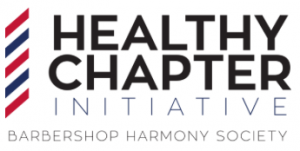This regular series will examine different facets of vocal health in which we hope to dispel myths and inaccuracies. Most importantly, our goal is to provide support for those who have experienced vocal concerns and provide constructive solutions for singers.
Healthy Singing
In order to establish a dialogue around the topic of vocal health, it is important to understand the components of healthy singing. Simply, healthy singing is a result of proper hygiene and efficient technique.
Hygiene

Good vocal hygiene is comparable to what is put into a car. Like a car, the voice needs to be well-hydrated and relatively debris free. What you ingest matters, although not usually locally at the vocal folds. Remember that we have two tubes: one going to the stomach, the esophagus, and one going to the lungs, the trachea. Food and drink go past the trachea, down the esophagus.
Care of the body means care of the voice. Above all, be hydrated! Avoid substances that irritate the voice (smoke, pollutants, etc.) or that dry out the body (caffeine and alcohol). Some medications also affect the voice. Check the effects of your medicine here.
Technique
Good vocal technique is comparable to how the car is driven. Running the voice too hard without proper rest can fatigue or even damage it. First, be aware of your daily voice use. Even for a professional singers, most of a person’s voice use is speaking. Therefore, speak well. Use a microphone when speaking even to a medium-sized room if possible.

It should go without saying, but avoid screaming or yelling (even if it the tag has a high hanger!). Avoid singing too long in ranges extremes. Excessive coughing and throat clearing can irritate the vocal folds. Be aware of long periods of hoarseness or breathiness in speech, as they could indicate a voice disorder.
In my experience as a long-time voice teacher, most singers get into trouble because of ineffectiveness in managing the pressure they sing with, which is directly connected to how much air is inhaled prior to singing. One effective way to train your voice to use less pressure is by singing through a straw, as in this video. A future article will discuss in more depth straw phonation, but this is a good start.
Modern barbershop is filled with with many fine examples of quartets singing with excellent technique. Enjoy this performance.
Questions? Help Available
If you, a quartet-mate, or a fellow chapter member has a concern about their voice, they should see a voice care professional. The Barbershop Harmony Society provides a free service of voice assessments. Voice assessments can be done live in Nashville and they can also be done via video chat platforms, such as Skype, Google Chat, etc. The results of a voice assessment will be one of three 1) an all-clear, 2) recommendation for voice therapy or lessons, or 3) recommendation to see a health professional, such as an ENT. Contact education@barbershop.org to schedule.

Consider taking voice lessons. Search out a reputable teacher in your area. If the teacher isn’t a barbershopper, make sure they are considerate of the style. The BHS has also been successfully offering voice lessons. These lessons are available locally in Nashville but also via video chat.
Happy, healthy singing, my friends.

Next in the series:
- Intro to Vocal Production
- Vocal Fold Pathologies.
Coming soon:
- Everything You Know About Breathing Is Probably Wrong
- Vocal Health In Depth
- Resonance Demystified
